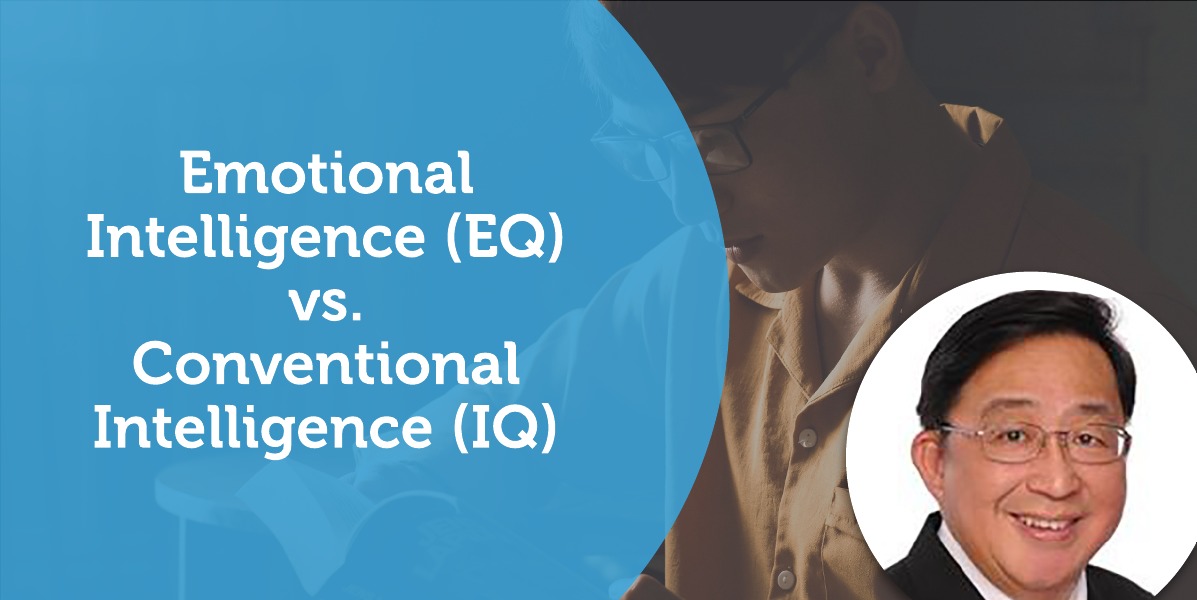 A Coaching Power Tool Created by Leslie Yong Kah Hong
A Coaching Power Tool Created by Leslie Yong Kah Hong
(Career Coach, SINGAPORE)
Emotional intelligence is a concept which researchers came up within the 1980s and 90s. It is said that conventional intelligence (IQ) is a measurement of the ability to process information and come to sound decisions. Emotional intelligence (EQ) is the ability to process emotions—both others’ and our own—and come to sound decisions.
Conventional intelligence, or IQ as it is measured, is too narrow and that there are wider areas of EI that dictate how competent we are.
Competence requires more than IQ which fails to assess behavioural patterns. There are many people who are academically outstanding but yet are inter-personally incompetent. Thus, even though they have high IQ rating, it does not guarantee success or interpersonally competent.
The essential premise of EI is that to be successful or competent, it requires one to possess awareness, control and management of one’s own emotions, and those of other people.
It embraces two aspects of intelligence, which are understanding myself, my goals, intentions, responses, behaviour and understanding others, their feelings and behaviours.
Some people have an incredibly high IQ but low EQ whereas there are others who have incredibly high EQ but low IQ.
Psychologists who study emotional intelligence argued that EQ is actually more important than IQ.
EQ improves personal and professional effectiveness and confidence and also makes a huge difference in the quality of coaching with clients.
When Daniel Goleman’s book entitled “Emotional Intelligence” made its appearance in 1995, it became the big buzzword in psychology.
Daniel Goleman’s model of Emotional Intelligence is very much practical and applicable for everyone to develop especially coaches.
Emotional intelligence is something we can work on and develop but IQ is harder to change.
How can I develop my EQ in my coaching profession?
There are 4 essential skills to help myself develop my EQ:
-
Practise Self Awareness
-
Manage emotions well
-
Connecting and Empathising
-
Fill emotions with values
In my coaching practice, I do not offer advice to clients. I also tend to avoid the ladder of inference, but instead, I always listen attentively without judgment. I always like to help my clients foster self-awareness so as to recognise their own feelings and triggers. When my clients need to understand where they are stuck, I will point out to them straight away with regards to their perceptions and actions to intentionally help them get back on the right track.
I remember Brenda who poured out her misery to me when she claimed she was being unfairly retrenched just because she was being too kind infrequently helping her colleague Joyce to finish up her work to meet the deadline. As I was coaching her, I was very present with her and did active listening without being carried away by my personal judgement of her situation or story.
Emotional Intelligence can be applied in dealing more effectively in areas such as conflict management, relationship management, as well as understanding and helping clients through inevitable changes in organisation and business development.
My client Andrew shared with me on his conflict with his immediate boss and always blaming his boss for being too unreasonable and unfair. I was mindful of my feelings as well as his feelings, corresponding responses and actions. I successfully applied my EQ skill to help him understand and look at the situation from a different perspective without offering any solutions until he came up with his own realisation and action steps to deal with the situation.
It has been a journey of growth in my emotional intelligence. I have been observing my emotions and my reactions and questioning myself why I am having those reactions and behaviours in a coaching setting.
I have achieved an improved level of empathy so much so I am able to understand the emotions of my clients and give them sufficient space so as to help them explore further what are the best resources or support structure they can obtain to achieve their desired outcome.
In today’s volatile, uncertain, complex and ambiguous (VUCA) business world, effective leadership requires mindsets and behaviours which are able to relate to stakeholders. It’s not just the learning of emotional intelligence, it is the application of that learning that really matters!
In conclusion, I strongly believe as a professional coach, I can use Emotional Intelligence as one of the Power Tools in my coaching sessions. I need, therefore, to be mindful of my own feelings and reactions and how they could influence my clients’ responses and outcomes. I must also be able to control my emotions in a positive and flexible manner. This self-management of my emotions include integrity, empathy, high regard for clients as well as to be non-judgemental.